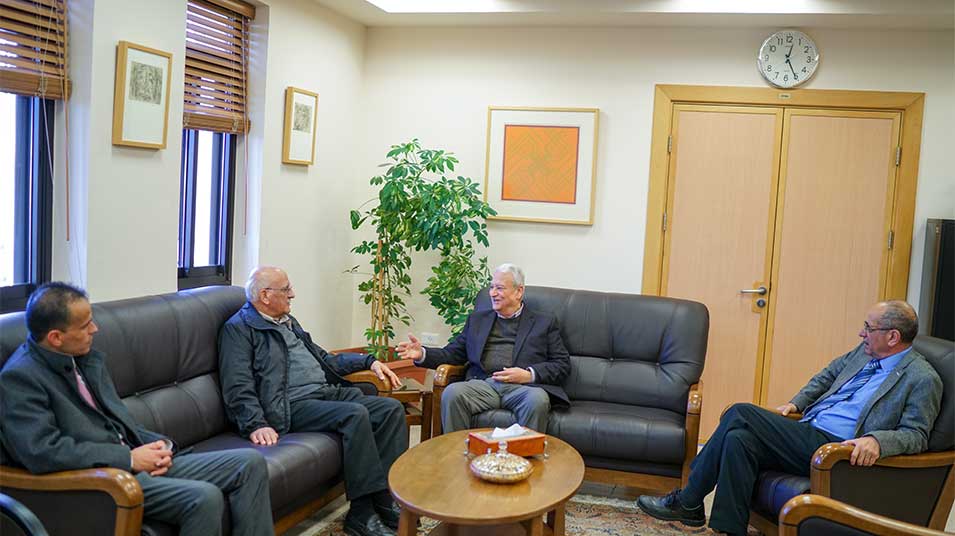Renowned physicist, President of the University discuss renewable energy research
Palestinian-American physicist and Professor of Physics at the University of Illinois at Urbana–Champaign Dr. Munir Nayfeh visited Birzeit University’s campus on January 8, 2017. Dr. Nayfeh met with President of Birzeit University Dr. Abdullatif Abuhijleh to discuss research efforts in nanotechnology and renewable energy generation and storage.
The meeting was attended by Vice President for Academic Affairs Dr. Faisal Awadallah; Assistant Vice President for Academic Affairs Dr. Mazen Hamed; and Assistant to the President Abdel Aziz Shawabkeh.
Dr. Nayfeh also met with a number of faculty members from the Faculties of Engineering and Technology and Science, with plans to organize a nanotechnology and renewable energy conference later this year.
Dr. Abuhijleh noted the need to keep up with major trends in renewable energy research, saying, “Our environment is our most prized asset, and we must do everything in our power to save it. Modern research in renewable energy generation has led us to the point where we can generate enough power to cover all of our needs. But the next problem to overcome is renewable energy storage, which we hope to do with the help of nanotechnology.”
“Here at Birzeit University,” added Dr. Abuhijleh, “as part of our commitment to the environment and renewable energy research, we have assigned a committee to plan and introduce a master’s degree in renewable energy, and we have also started a project to cover the roofs of our faculties and facilities with solar panels. So far, we have three buildings fully covered, and there are talks to extend this project to include all parking spaces.”
Dr. Nayfeh highlighted the recent nanotechnology breakthroughs in renewable and sustainable energy storage, “Nanotechnology has its numerous applications – from medicine to chemistry to farming, and the list goes on – but its most important application is energy. It opens a whole new world of opportunities.”
“At a certain point in time, renewable energy generation became feasible. Technologies such wind farms, solar photovoltaic power plants, and geothermal solutions became well-known and easily applicable. But the energy generated by those solutions was, even if clean, was variable. Nanotechnology provides a method of generation that will ensure a steady, consistent flow of energy to homes, schools, and companies,” said Dr. Nayfeh.







